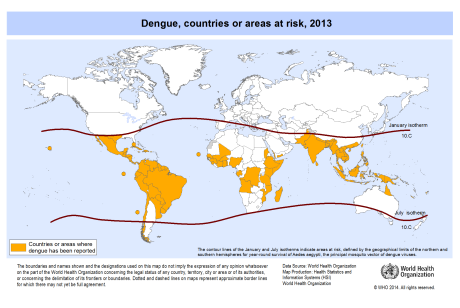 There are no vaccines or cures for dengue, known as “break-bone fever,” or chikungunya, so painful it causes contortions. While U.S. cases remain rare for now, they have been rapidly spread throughout the Caribbean and Central America. But Aedes aegypti, whose biting females spread these diseases, have evolved to resist four of the six insecticides used to kill them.
There are no vaccines or cures for dengue, known as “break-bone fever,” or chikungunya, so painful it causes contortions. While U.S. cases remain rare for now, they have been rapidly spread throughout the Caribbean and Central America. But Aedes aegypti, whose biting females spread these diseases, have evolved to resist four of the six insecticides used to kill them.
Enter Oxitec, a British biotech firm that patented a method of breeding Aedes aegypti with fragments of genes from the herpes simplex virus and E. coli bacteria as well as coral and cabbage. This synthetic DNA is commonly used in laboratory science and is thought to pose no significant risks to other animals, but it kills mosquito larvae.
Oxitec’s lab workers manually remove modified females, aiming to release only males, which don’t bite for blood like females do. The modified males then mate with wild females whose offspring die, reducing the population. Oxitec has built a breeding lab in Marathon and hopes to release its mosquitoes in a Key West neighborhood this spring
via Millions of GMO insects could be released in Florida Keys.

